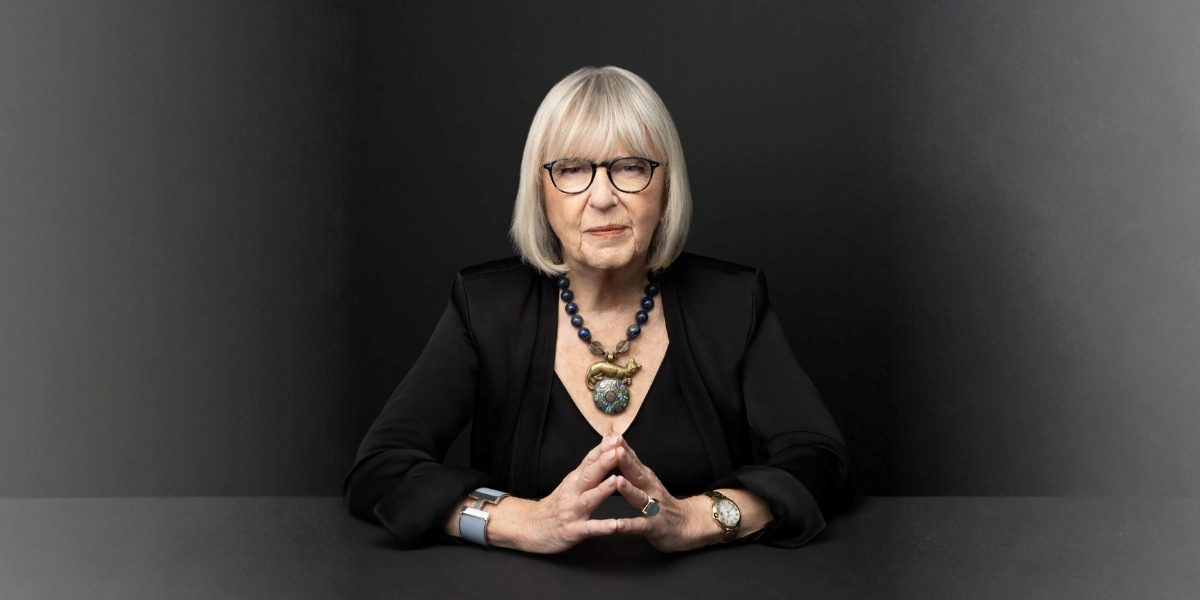By: Jeremy Murphy
At 92 years old and still a formidable presence in New York’s matrimonial courts, Harriet Newman Cohen embodies what she calls the “three lives” of her career — and now, in her forthcoming memoir, she chronicles them all. Her book, Passion and Power: A Life in Three Worlds, published by Bloomsbury and out February 5, 2026, is at once a professional autobiography, a portrait of changing social mores around marriage and divorce, and a deeply personal reckoning with the legal system’s role in the intimate corners of our lives.
Cohen’s story begins with discipline and determination. She entered Barnard College at 16, graduating in 1952 with a degree in Latin and a minor in music. After earning a master’s degree from Bryn Mawr College, she devoted herself to family life, raising four daughters in an era when educated women were expected to focus on the home. But when her marriage ended, she decided to rewrite her own story. At 38, she enrolled in Brooklyn Law School, where she earned her J.D. with honors and joined the Law Review — all while sitting at the dining room table doing homework alongside her children.
It was the 1970s, and divorce law in New York was still very much a man’s world. “When I walked into the courtroom after graduating, I’d be mistaken for the client, and my client — usually a man — would be mistaken for the lawyer,” she recalled. “There were no women in the courtroom.” Her new memoir explores that era’s gender barriers with frankness and humor, tracing her evolution from housewife to advocate. “I wanted to tell my story because the world I grew up in doesn’t exist anymore,” she said. “And I remember it all.”
Cohen rose quickly in her field, helping shape modern family law as the state moved toward equitable distribution and new standards for child support. By the 1980s, she was one of New York’s sought-after matrimonial attorneys, working on high-stakes cases involving powerful, wealthy, and often famous clients. Her firm, Cohen Stine Kapoor LLP, remains a fixture in the city’s legal landscape, handling the kind of complex divorces that make headlines but require discretion.
Her book is anything but dry legalese. It pulses with human drama and hard-won insight. She examines three cases in detail — “almost like novels,” she said — that reveal both her intellect and empathy. The famous is the so-called “Case of a Lifetime,” which inspired HBO’s Nuclear Family documentary series. It centered on two lesbian mothers whose family structure was threatened when one of the sperm donors sued for custody. “We changed the law at that point,” Cohen said. “Biology is not destiny. Family is what you make it.”
The second case involves a contentious prenuptial agreement that revealed the real power players weren’t the young couple but their fathers. The third, about a long-term couple who may or may not have been legally married, explores the gray areas of family law. Each story underscores the human complexity behind the courtroom battles. “Stories are what the world is about,” she said. “My memoir is full of stories.”
The book’s title refers to the “three worlds” Cohen has lived in — the domestic world of marriage and motherhood; the professional world of the courtroom; and today’s world, reshaped by technology, social change, and COVID. “After the pandemic, everything changed — the way we live, the way we work, even how we think about family,” she said. “We’re re-fighting some of the same battles I fought in the seventies.”
Now in her nineties, Cohen still practices law and mentors younger attorneys. She co-founded her current firm during the pandemic, embracing remote work before many of her peers. “I had never even heard the word Zoom before March 2020,” she laughed. “But here we were, working eight-hour days from our bedrooms, adapting to a new world.” Her partner, an Indian-American former police officer named Ankit Kapoor, impressed her from their first meeting. “I asked what his goal was, and he said, ‘I want my name on the door.’ I said, ‘Then you’re hired.’”
For all her toughness, Cohen doesn’t shy away from vulnerability. She speaks openly about her first marriage ending after 21 years. “I said, ‘What am I going to do with these four girls?’ And he said, ‘You’ll be fine,’” she remembered. “It was awful.” A year later, she met the man who would become her second husband, Dr. Arthur Feinberg, whom she calls the great love of her life. “He married me with four children and made me believe in myself again.” His death years later inspired one of her memoir’s moving chapters, titled Kaddish. “I wrote it, but I can’t bear to read it,” she admitted. “It’s about the people who shaped me.”
Over her long career, Cohen has represented governors, Broadway stars, and titans of industry, always guided by empathy and rigor. “I fall in love with my clients,” she said. “I have to. Their story becomes my story.” Her approach blends strategy and intuition — part general, part therapist. “When the seas are rough, I can’t break down. I have to keep the ship moving.”
At a time when many would retire, Cohen sees her age as an advantage. “People ask how I do it,” she said. “The truth is, I live so many different lives every day.” Her passion for the law and belief in justice remain as fierce as ever.
With Passion and Power, Cohen offers more than a memoir; she offers a map for resilience. Her life bridges eras — from the “man’s world” of the 1950s to a present where the definition of family continues to expand. It’s both an extraordinary legal history and a deeply human story of strength, humor, and transformation. For anyone who believes it’s too late to begin again, Harriet Newman A life, like Cohen’s, shows that extraordinary chapters can still unfold well into a person’s ninth decade.

















